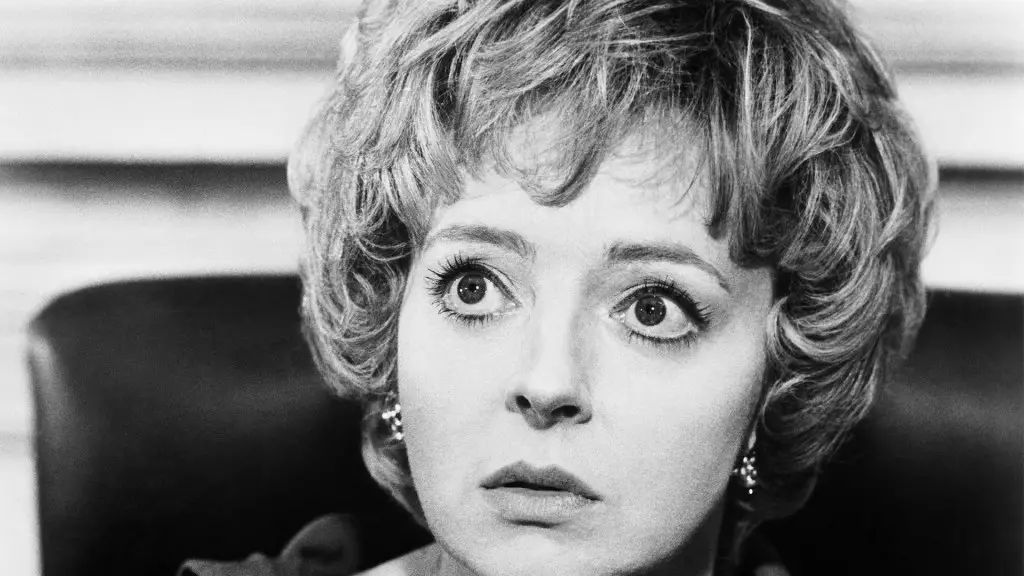The entertainment industry has lost a seminal figure with the passing of Barbara Leigh-Hunt, an accomplished actress whose dramatic presence and nuanced performances left an indelible mark in both film and theatre. Leigh-Hunt died on September 16 at the age of 88 in her home in Warwickshire, England, as confirmed by her family, though details surrounding her cause of death remain undisclosed. While she is perhaps best known internationally for her poignant role in Alfred Hitchcock’s 1972 thriller “Frenzy,” Leigh-Hunt’s career spans several decades, showcasing her extraordinary versatility across genres and mediums.
Leigh-Hunt’s portrayal of Brenda Blaney in “Frenzy” became one of her most recognizable performances. Her character, a tragic victim of the sinister “Necktie Murderer,” serves as a critical pivot in the film’s narrative, reflecting the darker aspects of humanity that Hitchcock was known for exploring. The complexity Leigh-Hunt brought to this role, a blend of vulnerability and strength, exemplifies her ability to deeply connect with her characters, thus resonating with audiences even years later. This performance solidified her status as not just a proficient actress but a cultural touchstone in the realm of psychological thrillers.
Born on December 14, 1935, in Bath, England, Leigh-Hunt began her journey in the performing arts early in her life. She made a significant impression on the London theatre scene, eventually earning an Olivier Award for her outstanding performance as Sybil Birling in Stephen Daldry’s acclaimed 1993 revival of “An Inspector Calls” at the National Theatre. Her contributions to the Old Vic and the Royal Shakespeare Company are noteworthy, as she took on revered roles in classical works including “Hamlet,” where she played Ophelia opposite her husband, Richard Pasco. Such groundbreaking appearances helped define not only her career trajectory but also the evolution of female roles within the realms of Shakespearean and modern drama.
Leigh-Hunt also graced the Broadway stage, further expanding her reach, having performed in productions like “A Midsummer Night’s Dream” and “King Henry V.” Her return to Broadway in the mid-1970s with “Sherlock Holmes” reaffirmed her longstanding appeal as an actress capable of captivating audiences across the Atlantic.
In addition to her work in film and theatre, Leigh-Hunt made significant contributions to British television, appearing in an array of series throughout her career. Among her most memorable roles was her portrayal of Lady Catherine de Bourgh in the highly praised 1995 BBC miniseries of Jane Austen’s “Pride and Prejudice,” where her performance alongside stars like Colin Firth and Jennifer Ehle solidified her presence in popular culture. This role, much like her others, showcased her ability to embody characters that were complex, often steeped in societal expectations, thus underscoring the transformative power of her artistry.
Leigh-Hunt’s filmography also tells a story of range; she appeared in numerous films from the historical drama “Henry VIII and His Six Wives” to contemporary stories like “Billy Elliot.” Her last major cinematic appearance was in Mira Nair’s “Vanity Fair,” where she charmed audiences alongside Reese Witherspoon. Such diverse roles underscore Leigh-Hunt’s ability to traverse various genres, further solidifying her as an adaptable and revered performer.
A Legacy Remembered
As we reflect upon the life and legacy of Barbara Leigh-Hunt, it is essential to recognize the void her passing leaves in the performing arts community. The world will bid farewell to an artist who was not only a pioneer in her craft but also a mentor and a source of inspiration for future generations of actors. A private funeral is scheduled for October 12 at St. John’s Church in Aston Cantlow, accompanied by a request for donations to the Royal Theatrical Fund or Denville Hall instead of flowers.
Barbara Leigh-Hunt may have departed, but her contributions to film, theatre, and television will forever live on, reminding us of her brilliance and the captivating performances she delivered throughout her distinguished career.


Leave a Reply